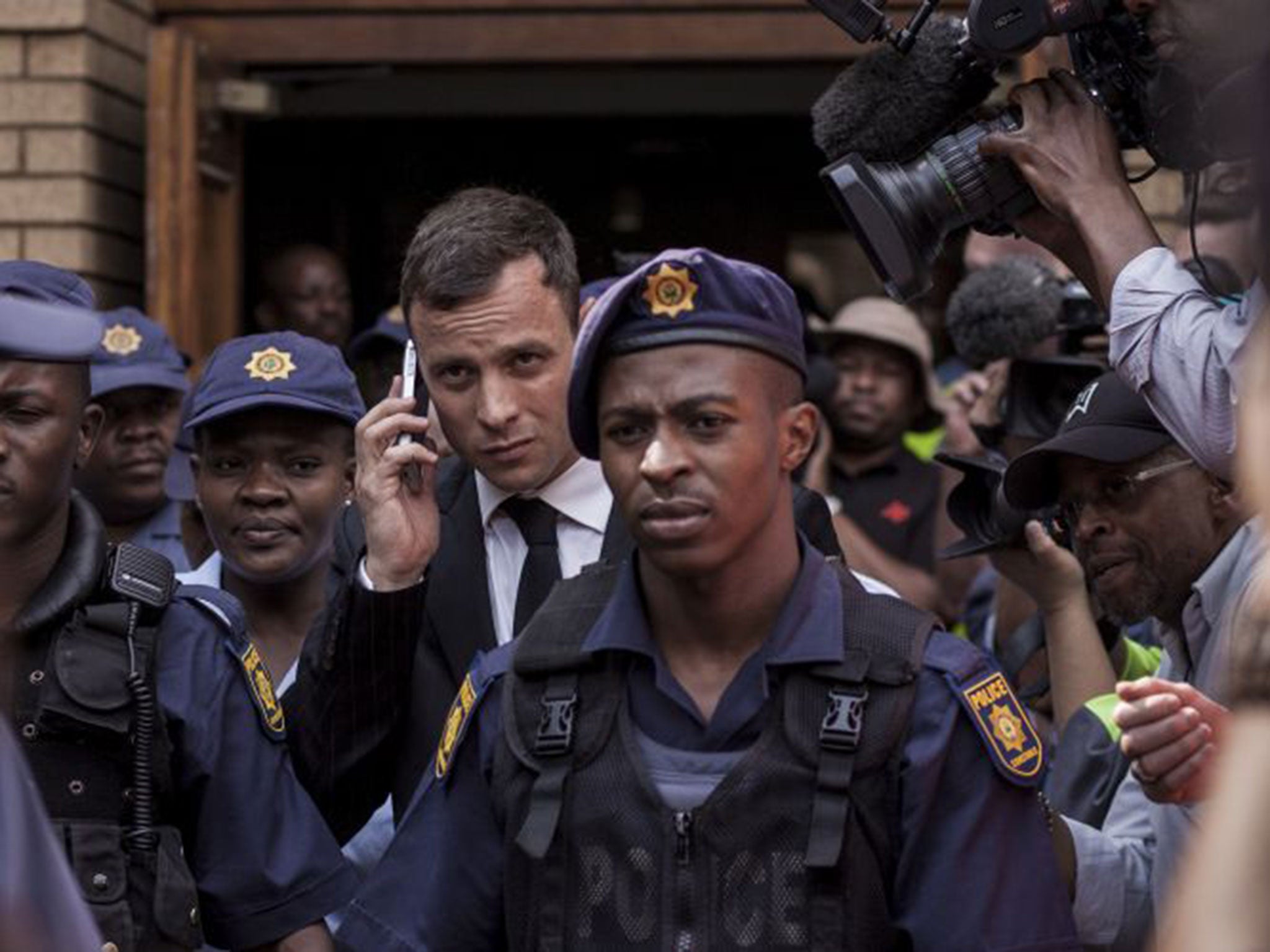Oscar Pistorius sentence: Athlete could get as little as three years' house arrest for Reeva Steenkamp manslaughter
Sentencing process for culpable homicide started today

Your support helps us to tell the story
From reproductive rights to climate change to Big Tech, The Independent is on the ground when the story is developing. Whether it's investigating the financials of Elon Musk's pro-Trump PAC or producing our latest documentary, 'The A Word', which shines a light on the American women fighting for reproductive rights, we know how important it is to parse out the facts from the messaging.
At such a critical moment in US history, we need reporters on the ground. Your donation allows us to keep sending journalists to speak to both sides of the story.
The Independent is trusted by Americans across the entire political spectrum. And unlike many other quality news outlets, we choose not to lock Americans out of our reporting and analysis with paywalls. We believe quality journalism should be available to everyone, paid for by those who can afford it.
Your support makes all the difference.Oscar Pistorius could face just three years' house arrest for killing his girlfriend Reeva Steenkamp, according to recommendations made to court at his sentencing hearing, which began today.
Joel Maringa, a social worker attached to South Africa’s Department of Corrections, said the sprinter could be confined to a house, and do some community service, but still allowed to train.
A psychologist who has assessed the athlete regularly ever since the shooting on Valentine’s Day last year said he may never recover from having killed Ms Steenkamp.
The long trial has now what is likely to be its last phase, as defence and prosecution make legal argument over what sentence the Olympic sprinter should receive, having been convicted of culpable homicide - South Africa’s equivalent of manslaughter - but been found not guilty of murder.
Reeva Steenkamp’s parents Barry and June were heavily critical of that decision, and both were back in court, as were Pistorius’s uncle Arnold, brother Carl and sister Aimee.
Prosecutor Gerrie Nel said such a sentence would be “shockingly inappropriate”.
“That would be no sentence, because that is what professional athletes do,” he said. "You have not applied your mind to the seriousness of the crime at all.”
Maringa disagreed, claiming that house arrest "is in fact a hard sentence", adding: "If someone is sentenced to correctional supervision and does not cooperate with the sentence, he can find himself back in court to face any other kind of sentence."
Mr Maringa said the community service would “involve cleaning, and some domestic work”.
“What is happening, he is going to be put in his home environment,” Mr Maringa said. “He is not going to do what he wishes. He will always have to ask for permission.”
Mr Maringa had been called to give his assessment by Pistorius’s defence counsel, but had been assigned by the state, not the defence, to assess what punishment was suitable.
Ultimately, the decision will be made by Judge Thokozile Masipa, who does not have to accept such recommendations. Pistorius could receive anything from a fine to community service or a lengthy incarceration. Last month she said the athlete had acted "negligently" when he shot his girlfriend through a toilet door, but had genuinely thought her to be an intruder.
Legal experts speculating on what her decision might be are in significant disagreement. Judge Masipa has previously handed down some extremely tough sentences, including 252 years to a serial rapist, and there are many in South Africa who believe the athlete must serve a long jail term or he will be perceived as having got away with it. But in finding him not guilty of murder, the judge accepts he was shooting at an intruder. It was a first offence, he is extremely remorseful, and there is little risk of his ever offending in such a way again.
The psychologist who gave evidence, Dr Hartzenberg, described herself as an expert in trauma counselling, said she first met Pistorius on 25 February last year, 11 days after the death of Ms Steenkamp, and had been counselling him since. She said many of their sessions together had involved the athlete simply “crying and retching and sobbing” and that little progress was made on these occasions. She said he showed signs of suffering from post-traumatic stress disorder and depression.
Pistorius’s agent, Peet Van Zyl also gave evidence of his friend and client’s substantial charitable work, showing letters written to him from the likes of Sir Bobby Charlton and Lord Seb Coe.
The hearing is likely to last all week.